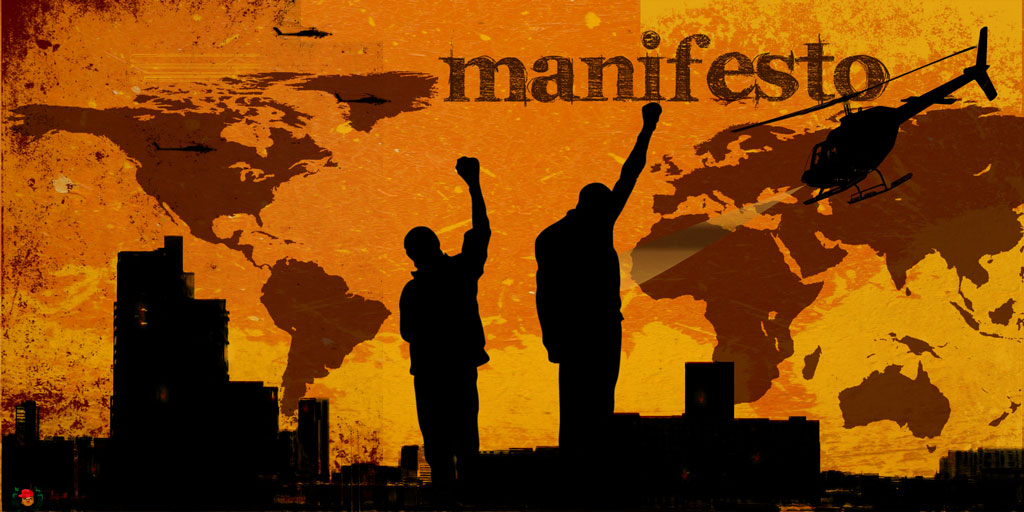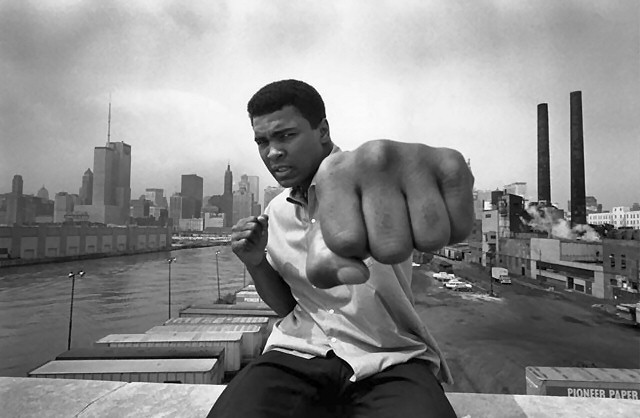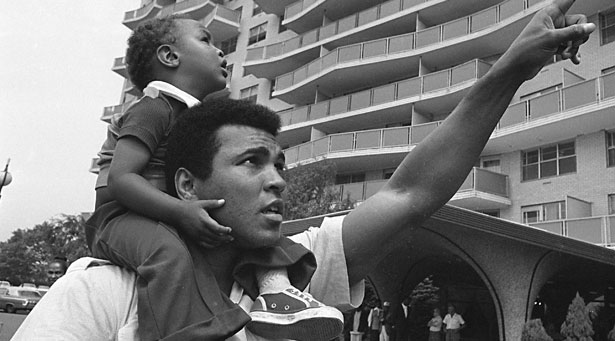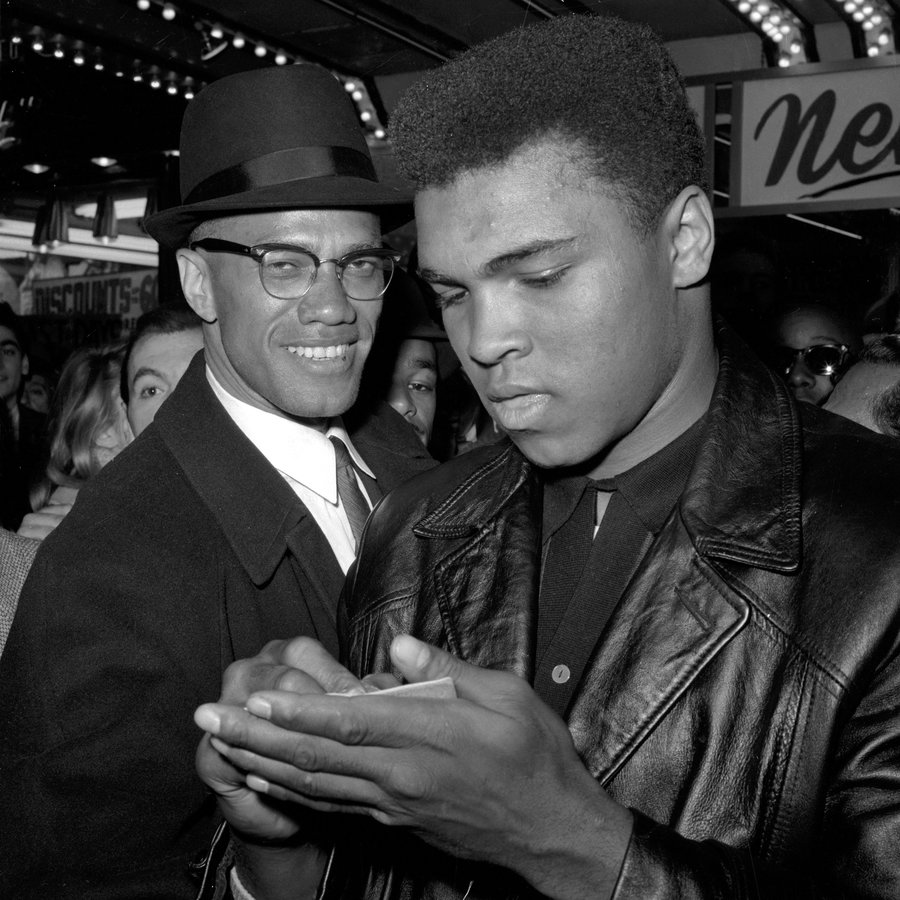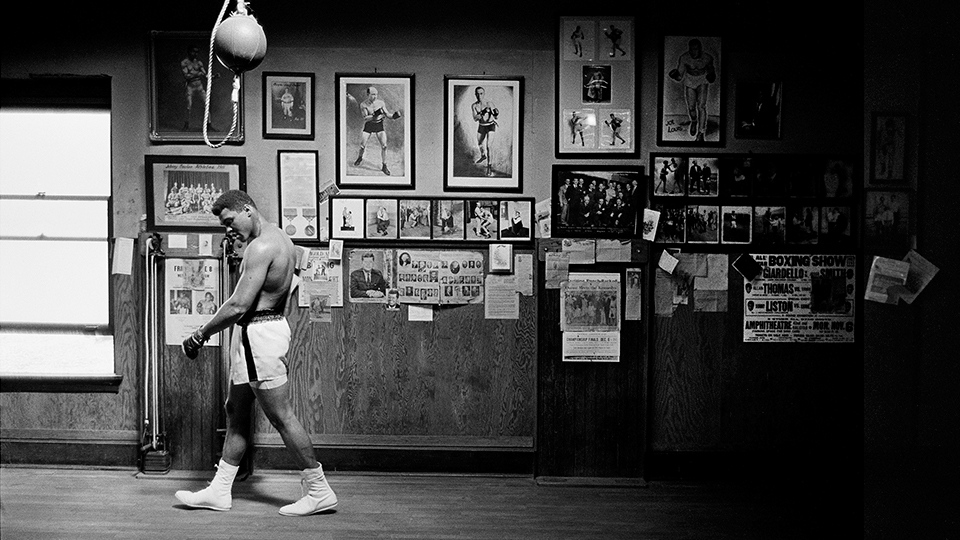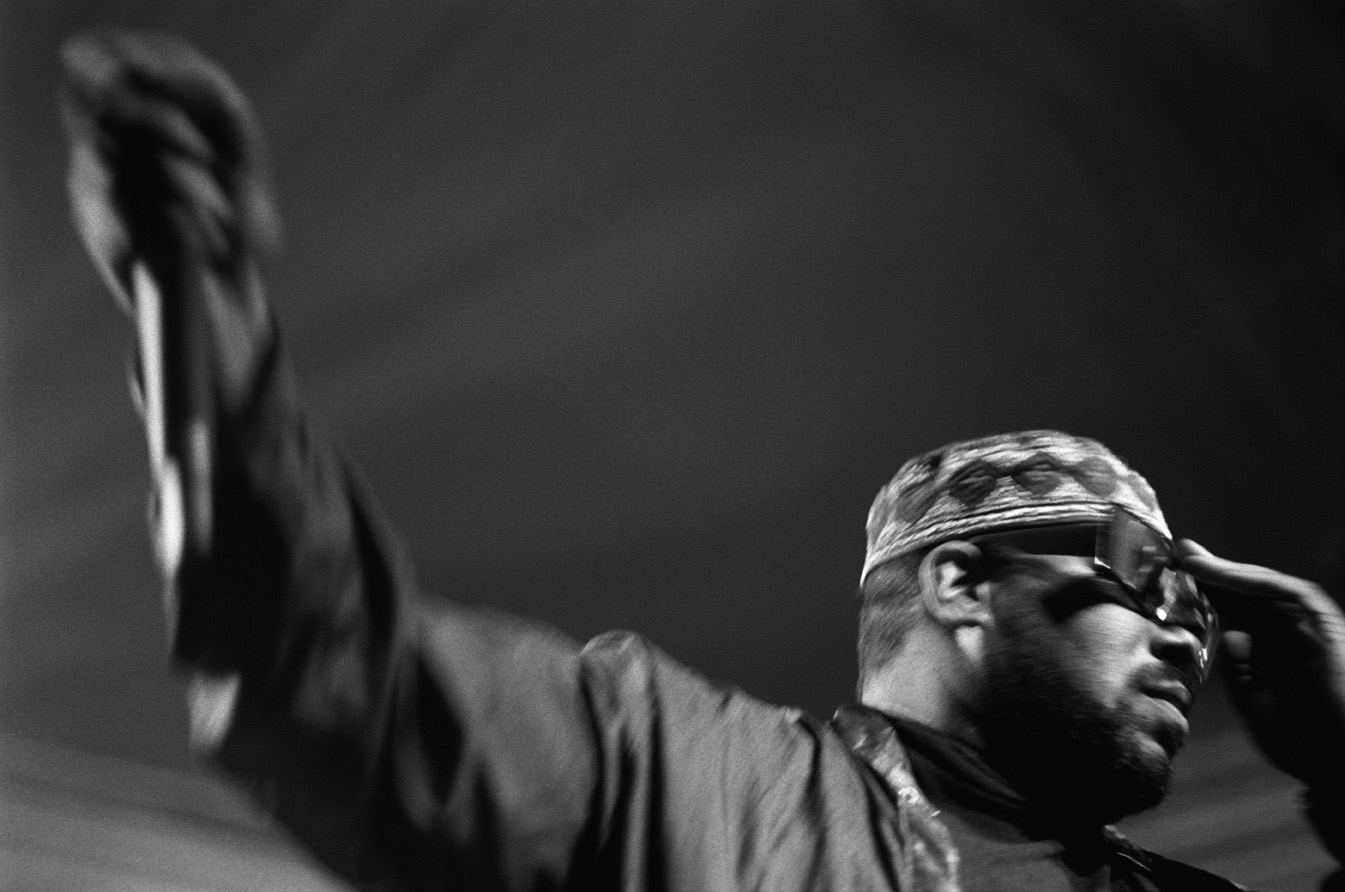Stakes Is High, Twenty Years Later - Chris "Preach" Smith
 Saturday, July 2, 2016 at 5:10PM
Saturday, July 2, 2016 at 5:10PM  Photo Credit: Wikipedia
Photo Credit: Wikipedia
These past few days, there have been reminders here and
there dropped in my lap with regards to life and all of the
changes associated with it. I get up some mornings and
check email bulletins in my inbox and find another store or
nightspot or eatery I came up with is gone with the wind.
It’s change on the move here in New York City, a tad too
fast in comparison to what took place in the generation
before mine for my taste. I find it as the underbelly to a
couple of discussions I’ve had with folks, especially when it
comes to rap music and the overall hip-hop culture. There’s
one or two who position themselves as purists that I know,
almost to the point that they come off as stodgy and
inflexible. Change, when it comes, can be off-putting and
tough to deal with. It gets even more challenging to further
evolve and define your own stance in the face of it. And so,
it makes sense that today is the 20th anniversary of an
album where that internal struggle and expression came to
the forefront with one of hip-hop’s most influential and
sometimes misunderstood groups, De La Soul. That album?
Stakes Is High.
Stakes Is High dropped on July 2nd, 1996, and immediately
became part of my summer soundtrack as I whipped around
NYC on the subways. I had been intrigued after seeing the
video for “Itzhowzee” on Rap City, and seeing how De La was…
well…different. De La Soul had always been viewed by many
I know as a rap group that was guaranteed to give you some
dope music but they didn’t get a whole lot of love from a few
folks out there. That indifference to them went back to their
D.A.I.S.Y. Age stylings and influences that put off some cats
(I’ll never forget one dude in The Wiz saying out loud once,
“Ayo you listen to them tie-dye Long Island dudes? Fugg outta
herrrrrrrrrrrrrrrre!!!” in between miming Sticky Fingaz from
Onyx)even though they were co-founders of one of the all-time
great music collectives, the Native Tongues. Being in college
then, you found that De La got a lot of play with white kids
who viewed them as an easier entry group to vibe with with
regards to rap. Of course, that came about because of the
influence of production from Prince Paul that fed off a treasure
trove of jazz, psychedelic pop and rock earlier on in their
careers. De La Soul caught a lot of flack. “Coffeehouse rap.”
That was how it got described once. “Soft”. What was wild
was that their presence spurred on the rise of other groups
that delivered rap music in a unique way that was similar
(i.e. Digable Planets, P.M. Dawn, Boogiemonsters) but they
weren’t given the respect due. This time however, Prince Paul
wasn’t involved with any of the production thanks to a split
between he and the group. Heading up the process was the
members themselves, led by Dove. This would prove to be
extremely important to the album’s overall sound and message.
Right off the bat, Stakes Is High showcases that it’s a powerful
album thanks to “Intro” which begins with various people
reminiscing about the first time they heard Boogie Down
Productions’ “Criminal Minded”. From there you get Posdonous
spitting and you know off the bat that this is going to be a
different De La experience thanks to these bars that wound up
causing MAJOR beef between the group and another popular
group of that time(more on that in a bit):
A talker of the verb without weed influence
so stick to your Naughty By Nature’s and your Kane
‘cause graffiti that aint based upon the wax is insane
From there you get “Supa Emcees”, opening with Dove
essentially imitating a police siren and stating “that’s the
sound of the poor” as the beat drops. The track itself is
a sharply pointed commentary on the growing shift in
rap music, with some quips that not only were biting
but prescient in their accuracy. De La’s disappointment
with the rise of extreme reliance on gangster ethos
and overt commercialism being pushed by the industry
in rap music at the time shows throughout Stakes Is
High. Take this into account - this was around the same
time that Nas had dropped It Was Written and Jay-Z’s
classic Reasonable Doubt hitting the streets. You also
had The Score from The Fugees competing with Bone
Thugs-N-Harmony atop the charts. The scene was shifting,
and for De La Soul it must’ve felt like far too much.
For some, Stakes Is High sounded depressing at first in
comparison with some of the other projects out there
that had more upbeat elements. But true musical genius
is always off-putting at first. Dig deeper into the tracks
and you see how stronger both Pos and Dove got as MC’s.
“Down Syndrome” is a prime example of this, with both
rappers trading cluster bomb verses that made you mess
up the fast forward button on your Sony Discman back
then. They made it a point this album to basically tell the
world, “listen, we see these changes and we’re not happy
with the artistry being lessened in rap. You don’t like what
we’re saying? Come bring it.” In that respect, Stakes Is
High is both challenge and commentary. Listen to “Itzhowezee”
again, and you see how Dove’s solo venture makes it so:
And yo get your bowl ‘cause we cookin up stew
See them Cubans don’t care what y’all n****s do
Colombians aint never ran with your crew
why you actin’ all spicy and shiesty
the only Italians you knew was icees
Challenge. Commentary. You hear it on every track, in the
carefully crafted interludes(like the one depicting a racist
white guy deriding rap music at the end of “Long Island
Degrees”) and the one right after “Stakes Is High” where
cats talk about O.J. Simpson. That one verse from Pos from
Intro you saw a while back? That wound up causing a serious
beef between them and Naughty By Nature, and even got
the late 2Pac riled up enough to record a diss against them
that was released only after his death. (Side note: as much
as many thought De La Soul were soft cats based on their
music, the amount of stories I’ve heard of them dusting
heads off like furniture polish number in the dozens.) Most
of all, Stakes Is High spoke to me as an album that touched
on realities of life that I was soon going to face. “Pony Ride”
talked about interpersonal relationships and what caused
folks to drift apart from each other. I mean, Pos’ entire verse
on that track resonates a lot more now as I’m a couple years
away from the 40th decade of life and seeing guys I know
get divorced. This is before we even get to the title track.
“Stakes Is High” goes down as probably one of the most
influential and era-transcending hip-hop tracks ever due to
a couple of factors. First? Production from J Dilla, who was
on the way to being the legend he is now regarded as. Second?
The GEMS dropped by Dove(“I think that smiling in public is
against the law/cause love don’t get you through life no more”)
and by Pos(“A meteor has more rights than my people”).
And again, this proves De La’s willingness to push the envelope
- this was also the album that gave further exposure to
Mos Def.
That’s the true value, years later of Stakes Is High. It’s an
album that cut through the bullshit of the time to remind
listeners of what should really matter. It didn’t do well in
sales, and was panned by some. But it has not only held up
well in the past 20 years, some of it applies directly to what’s
going on today. You still have wack rap talent succeeding.
You still are dealing with an industry that wants to put
artists in boxes. It’s interesting that De La Soul now is set
to release their latest album to widespread acclaim via
crowdfunding efforts this August, spurning the traditional labels.
Once again, providing both a commentary and a challenge not
just to the rap world but us as listeners. The lessons of
Stakes Is High are life lessons about accepting the change
that you can accept, and giving the middle finger and
combatting the change you cannot accept however you
can. You can’t help but appreciate that.
